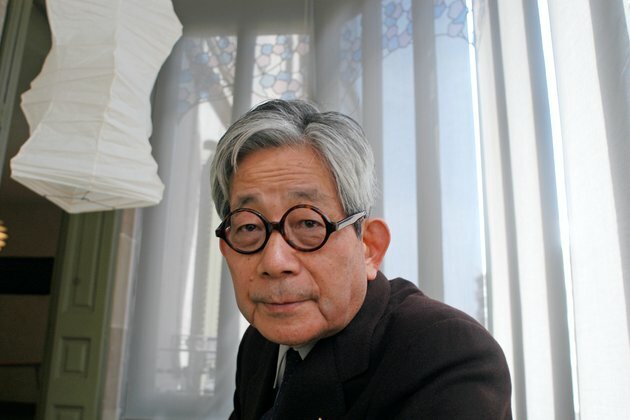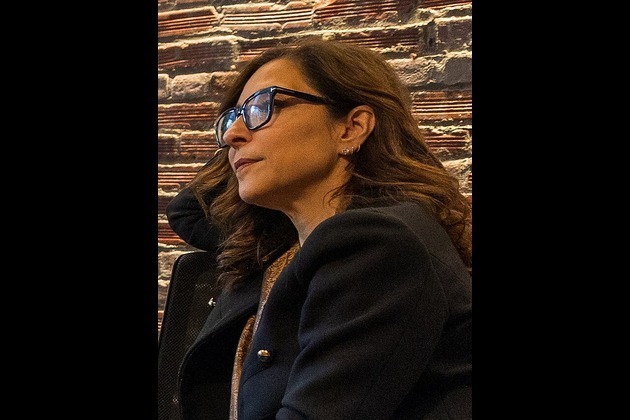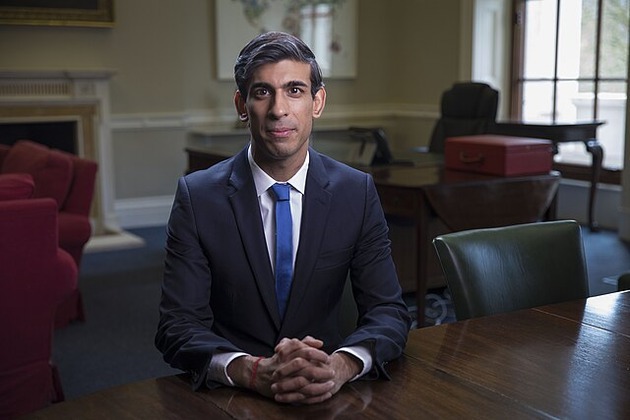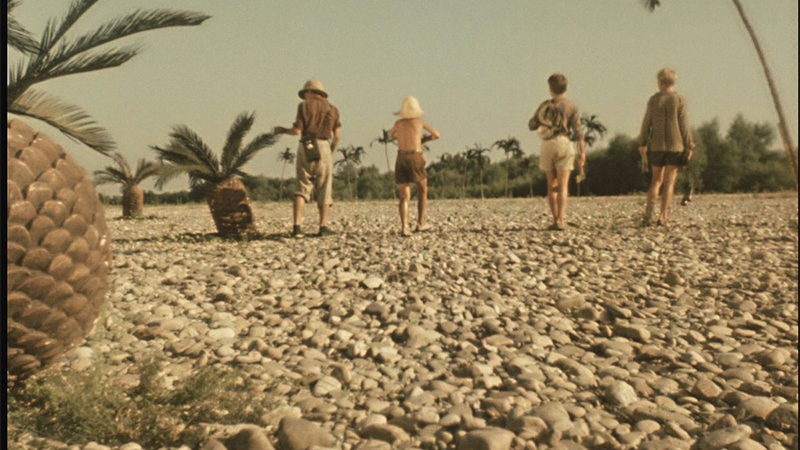Kenzaburō Ōe: a writer of real humanity and the real Japan
The Conversation
17 Mar 2023, 00:09 GMT+10

The death at 88 of Japanese writer and Nobel prize winner Kenzaburō Ōe on March 3 leaves a deep wound in his readers. But also in the Japanese community, which has lost one of its most powerful voices and critics.
Ōe was a literary giant. In Japan open political discussion and participation is discouraged and the media is often influenced by the government. Ōe was the last politically engaged Japanese postwar writer.
In his sharp, often merciless, commentaries of his country, he criticised factors damaging democracy and human rights, including nationalistic governmental policies, the presence of dangerous atomic power plants and the imperial system.
He even refused the award of the national Order of Culture, an honour bestowed by the emperor. Due to his open democratic commitment, he faced violent threats from right-wing organisations and was even brought to trial.
On and off the page, he combined an attentive focus on Japan with a profound knowledge of Western thought and expression, ranging from French philosophy (he graduated with a thesis on Sartre) to modern and classical authors such as TS Eliot and Dante Alighieri. This made him one of the few Japanese intellectuals whose work resonated with global questions of identity, injustice, and the search for home.
Bravely depicting postwar Japan
Born in 1935, Ōe started publishing in his twenties. His early work explored the relationship between disenfranchised individuals and authoritarian power.
In his first short story An Odd Job (1957) students are hired to help slaughter 150 dogs used by the faculty of medicine for experiments. The students' predicament, ominously resembling that of the animals, speaks to his own postwar youth.
Japan in the 1950s was bereft of strong ethical and political models after the defeat of its nationalistic collective ideology in the Pacific war and the subsequent American occupation. Left without a definite identity and purpose, like Ōe's generation, the youths in the story are at the mercy of an absurd system where they do not feel represented.
Ōe's story Seventeen (1961) can be read as an extreme consequence of his first. The disenfranchised youngster here finds solace in abandoning his individuality to the intoxicating violent practices of a burgeoning imperialist nationalistic group.
Ōe's career was shaped by his reflections on Japan's incapacity (and unwillingness) to confront itself, acknowledge its war crimes and identify its position in Asia.
Upon being awarded the Nobel Prize in 1994, he spoke of "ambiguity" in Japan as a "chronic disease that has been prevalent throughout the modern age". In his lecture, he referenced another Nobel speech by Yasunari Kawabata, the only Japanese writer to win the prize before him in 1968, entitled Japan, the Beautiful and Myself. Ōe's was titled: Japan, The Ambiguous, and Myself.
By using the term "ambiguous" in response to the "beautiful" in Kawabata's speech, Ōe placed himself in the history of global Japanese literature by distancing his work from the aesthetic representation of Japan that had dominated its cultural image abroad. This representation was of a country made of Zen Buddhism, tea ceremonies and a placid appreciation of transient beauty (among others).
The multiplicity of humanity
As well as presenting the country as he honestly saw it, he also foregrounds ambiguous and silenced Japanese identities.
Prize Stock (1958), which earned him the coveted Akutagawa Prize, launched him into literary prominence. This story depicts the encounter between a Japanese boy and a black prisoner of war in his island village.
In Japan, urban dwellers could discriminate against those from a rural background - a background that Ōe possessed growing up in Shikoku, the southern and smallest peripheral island in the main archipelago. In this story, the townspeople treat the villagers "like dirty animals" and in turn, the villagers refer to the black prisoner in the same way. Prize Stock is a discomfiting story about abuses of power and how everyone is capable of it.
Such exploration of the multiplicity of Japanese identity continued intersecting with reflections on space in his work.
The Silent Cry (1967) and Death by Water (2009) intertwine the stories of marginalised communities with folklore and tales of their ancestors' uprising against local authorities. These novels highlight peripheral Japanese heritage and memories. They are also indicative of how the rural is never a simplistic idyll countering the suffocating corruption of the city in Ōe's work. Instead, the rural is an organic alternative still replete with violence and discrimination, so nonetheless vibrant and real.
In Ōe's work, the rigorous descriptions of all sides of human nature - light and dark, grotesque and cruel - offer possible reconciliation between seemingly opposing factors. Ōe saw his literature as a humanistic endeavour to represent human suffering and explore possibilities of healing.
In his commitment to writing honestly, he never shied away from his personal crises. He wrote often about the birth of his mentally disabled son Hikari, which generated the novel A Personal Matter (1964) and many others.
The acceptance of the coexistence of life with fatality inspired his subsequent essay collection Hiroshima Notes (1965), where he reflects on the political instrumentalisation of atomic bomb victims and underscores the need to respect their right to silence. His condition as a struggling father intersects with the meditation on those affected by man-made disasters in the atomic age, where annihilation can come suddenly. For Ōe, notwithstanding the scale, it was always a personal matter.
Now Ōe has probably "gone up" to the trees of his beloved native forest, to which, legends say, souls return after leaving the bodies. For us that remain, his memory will hopefully motivate a (re)discovery of his imaginative yet real portrayals of Japan and life, so powerful because they were so unapologetically human.
Author: Filippo Cervelli - Lecturer in Modern and Contemporary Japanese Literature, SOAS, University of London 
 Share
Share
 Tweet
Tweet
 Share
Share
 Flip
Flip
 Email
Email
Watch latest videos
Subscribe and Follow
Get a daily dose of Business Sun news through our daily email, its complimentary and keeps you fully up to date with world and business news as well.
News RELEASES
Publish news of your business, community or sports group, personnel appointments, major event and more by submitting a news release to Business Sun.
More InformationFinancial Markets
SectionAI saves $500 million for Microsoft as layoffs reshape strategy
REDMOND, Washington: Artificial intelligence is transforming Microsoft's bottom line. The company saved over US$500 million last year...
FTC’s rule to ease subscription cancellations struck down by court
WASHINGTON, D.C.: A federal rule designed to make it easier for Americans to cancel subscriptions has been blocked by a U.S. appeals...
Musk’s X loses CEO Linda Yaccarino amid AI backlash, ad woes
BASTROP, Texas: In a surprising turn at Elon Musk's X platform, CEO Linda Yaccarino announced she is stepping down, just months after...
Ex-UK PM Sunak takes advisory role at Goldman Sachs
NEW YORK CITY, New York: Former British prime minister Rishi Sunak will return to Goldman Sachs in an advisory role, the Wall Street...
Gold ETF inflows hit 5-year high as tariffs drive safe-haven bets
LONDON, U.K.: Physically backed gold exchange-traded funds recorded their most significant semi-annual inflow since the first half...
U.S. stocks recover after Trump-tariffs-induced slump
NEW YORK, New York - U.S. stocks rebounded Tuesday with all the major indices gaining ground. Markets in the UK, Europe and Canada...
Technology
SectionAI saves $500 million for Microsoft as layoffs reshape strategy
REDMOND, Washington: Artificial intelligence is transforming Microsoft's bottom line. The company saved over US$500 million last year...
Musk’s X loses CEO Linda Yaccarino amid AI backlash, ad woes
BASTROP, Texas: In a surprising turn at Elon Musk's X platform, CEO Linda Yaccarino announced she is stepping down, just months after...
Rubio impersonator used AI to reach officials via Signal: cable
WASHINGTON, D.C.: An elaborate impersonation scheme involving artificial intelligence targeted senior U.S. and foreign officials in...
TikTok building U.S.-only app amid pressure to finalise sale
CULVER CITY, California: TikTok is preparing to roll out a separate version of its app for U.S. users, as efforts to secure a sale...
Trump admin allows GE to restart engine sales to China’s COMAC
WASHINGTON, D.C.: The U.S. government has granted GE Aerospace permission to resume jet engine shipments to China's COMAC, a person...
France opens criminal case against Musks X
Politicians claim the platforms algorithms boost hate speech and threaten democracy France has opened a criminal investigation into...











